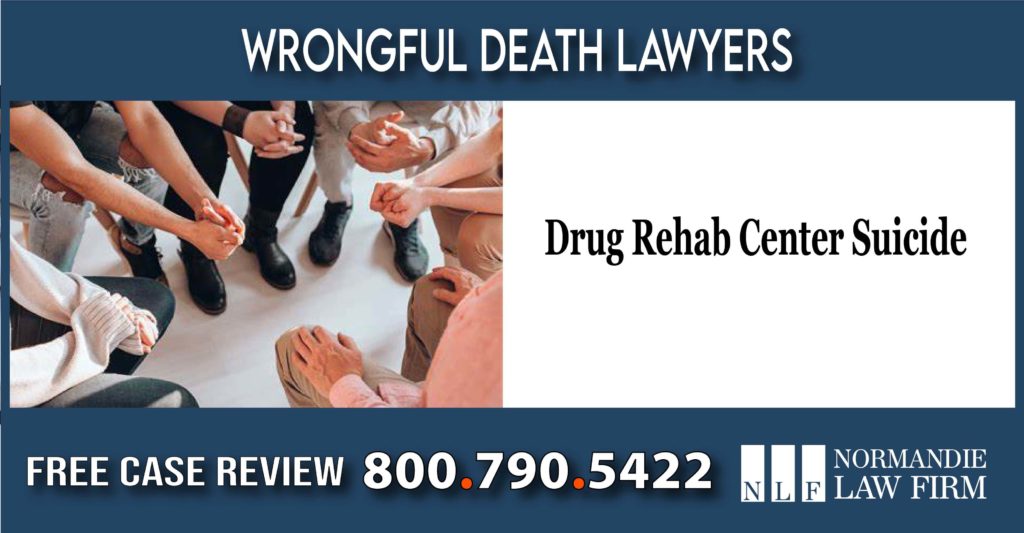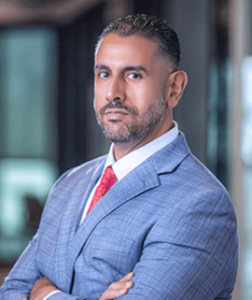
Over the years, there have been notable advancements in the way we perceive and treat those who are afflicted with drug addiction. Sadly, drug dependency is still a huge problem in the U.S. due to the opioid crisis, among other factors. Predictably, drug rehabilitation has become a massive industry – one that cares more about profits than helping those who come to them for treatment. Negligence and misconduct have been on-going problems at these facilities, according to a study headed by Tamara Beetham at Yale University.
Her study, which was published in “Health Affairs” on February 2021, showed the aggressive marketing techniques used by these facilities, and how they failed to ask basic medical questions during the screening process. Furthermore, most of the rehab centers she evaluated did not offer scientifically-proven treatments using medications like buprenorphine and methadone. This means they are not really treating the patient, so much as detaining them until the money runs out. All these conditions create the perfect storm for a rehab facility suicide, which happens more often than most people realize.
Are you a surviving family member, spouse or registered domestic partner of someone who committed suicide at a drug rehab center? If negligence by the facility owners or staff members led to your loved one ending their own life, we can help you take legal action against the rehab center. We know that this is an incredibly painful stage in your life, and a lawsuit may be the last thing on your mind. Ultimately, the choice to take legal action is up to you, but it’s a good idea to be informed of your rights and legal options. A suicide in drug facility lawyer is ready to assist you, so please contact us at your earliest convenience.
Our Recent Verdicts and Settlements
$2.5 Million
$1.1 Million
$1.5 Million
$600,000
$525,000
$734,851
What are my Rights if my Loved One Committed Suicide at a Drug Rehab Center?
You have the right to expect that your loved one is protected from harm if they are under supervision by a healthcare facility. But there is little government oversight and far too much greed when it comes to private rehab programs. The result is an increasing number of suicides among addicted individuals, even when they’re on suicide watch at a rehab facility. When patients and their family members are failed by a drug rehab program, they may have grounds to sue the facility for wrongful death compensation.
Can families of victims file a lawsuit for suicide at a drug rehab facility?
Yes, surviving family members can sue a rehab facility if the victim committed suicide while they were under supervision. Aside from family members, California’s Code of Civil Procedure 377.60 also permits spouses and registered domestic partners to file a wrongful death lawsuit.
If my parents died in a drug rehab facility from suicide, can I sue?
Yes, a lawsuit can be filed if negligence by a rehab center caused or contributed to your parent’s suicide. Statute of limitations is an important factor in these cases, which has to do with the amount of time you have to file your lawsuit. The time you are given depends on whether you were a minor or an adult at the time of the incident. Please refer to the section titled “Statute of Limitations for Wrongful Death Lawsuits” to learn more about this topic.
Can I sue if my child / son / daughter died while under supervision of a drug rehab center?
Constant monitoring at a rehab facility is essential when the patient is a minor, as they have limited coping mechanisms and impulse control compared to an adult. If an act of negligence is to blame for your child’s death at a drug treatment center, you have the right to seek compensation from the responsible parties.
Drug Rehab Facility Suicide – Who is Responsible?
Liability is the concept of being responsible for something, primarily another person’s harm and suffering. When a rehab center patient commits suicide, liability often falls on a staff member or the owners of the facility. These places are aware of the responsibility they have for a patient’s care. Sadly, protocols that govern most healthcare providers are rarely enforced at residential addiction care centers. This means that there is no guarantee your loved one will be checked in by a licensed mental health care professional. They may also be left alone for long periods of time due to careless or poorly trained staff. Lack of staffing is another big problem; staff psychologists may ask interns or non-certified counselors to assess a patient’s suicide risk.
It’s worth noting that suicides are not always predictable, as many people struggle with suicidal ideation but choose to refrain from acting on those thoughts. But liability by a drug treatment center is not about prediction; it’s about foreseeing the possibility of suicide and preventing harm to the patient as much as possible. The fact that patients with substance abuse issues are more prone to suicide is not a well-kept secret. There are plenty of studies out there, like Suicide Risk and Addiction: The Impact of Alcohol and Opioid Use Disorders, which is available on the National Library of Medicine website. According to the study, “chronic opioid use can result in neurobiological changes that lead to increases in negative affective states, jointly contributing to suicide risk and continued opioid use.”
Reasonable precautions by drug rehab centers are necessary to counter these risk factors and keep patients from acts of self-harm. A rehab facility’s failure to exercise reasonable caution is the basis for proving a case of negligence. Acts of negligence may be committed by an employee of the facility, such as a doctor, nurse, psychologist, drug counselor, or social worker. However, the business owners can also be sued for playing a role in a patient’s suicide. A common example has to do with security measures, like ensuring that all doors and locks are in proper working order. If a suicidal patient bypasses a door with a broken lock and makes their way to the roof, the rehab center owners may be sued if the patient commits suicide by jumping off the roof.
Liability in your loved one’s death may be more complicated than the examples we’ve provided. A discussion with our legal experts will help you understand the legal process and how justice can be achieved on behalf of the decedent.
What can I ask for in a Wrongful Death Lawsuit?
When you sue a negligent party for wrong death, you are asking to be compensated for the economic and non-economic losses that have resulted from the victim’s passing. A lawsuit for a drug rehab center suicide can help you recover:
- Funeral costs
- Medical expenses
- Lost wages and benefits
- Pain and suffering
- Loss of consortium
- Attorney’s fees
As you can see, most of these categories account for losses that are projected long into the future. With that in mind, it’s essential to recover maximum payment from your lawsuit, which our attorneys can help you with. Please give us a call to learn how we can fight for you and the settlement you deserve.
Average Case Value of a Suicide at a Drug Facility Lawsuit
Each case of wrongful death has its own set of factors that are based on the decedent’s life, as well their role in the lives of their loved ones. As a result, it’s challenging to provide a set value that can be seen as “average” for these cases. However, we have enough of years of experience with wrongful death claims to know that these are high value cases. Settlements typically range from $500,000 to several million dollars, especially if the at-fault party’s negligence was particularly outrageous or harmful.
Why is there such a wide range in case values? Primarily, it comes down to the losses that family members have to deal with due to the premature death of their loved one. For example, think of the financial and emotional losses that a family is left with when their main breadwinner, who is in his 30s with several children, dies from an accident. Combined with the medical and funeral expenses, not to mention emotional damages like pain and suffering, it’s not hard to see why this case has a value of several million dollars. On the other hand, a case value may be lower for someone who is elderly and retired, and no longer has dependents that rely on him for financial support.

How long will it take to Settle my Case?
There’s no way to predict how long a wrongful death claim will take to settle. Depending on the rehab center’s willingness to negotiate, it’s possible that we can recover your payment in 6 to 8 months. However, public image is everything to these business owners, and many of them will not go down without a fight. That doesn’t mean a settlement is impossible; rather, it can take a year to 18 months to achieve a fair amount of compensation. If negotiations are unsuccessful, you have the option of filing a lawsuit, which will add two or more years to your case timeline. While taking your case to trial is a possibility, there a 95% chance that your lawsuit will settle before the trial date. However, our lawyers are more than ready to take your case to trial and bring you the verdict you deserve.
What is the Statute of Limitations for a Wrongful Death Lawsuit?
In most cases, the statute of limitations for a wrongful death claim is two years, starting from the date of death. However, there is an exception under the discovery rule, which applies if you find out about your loved one’s death at a later date. This is relevant for deaths involving substance abuse patients, as many of them have lost touch with friends and family by the time they seek help. The discovery rule gives you one year from the date you discover your loved one’s death to file a lawsuit against a drug treatment facility. Another notable exception involves minors that lose a parent to suicide while they’re staying at a rehab center. Since an underage person cannot take legal action on their own, these individuals have two years from the date they turn 18 to file a lawsuit for the wrongful death of their parents.
Free Second Opinion from a Lawyer Experienced in Wrongful Death Cases
Some of the people we meet come to us for a second opinion, meaning they have an active claim that’s being handled by another law firm. Most of these claimants are frustrated by the lack of care and attention from their attorney, or how long it’s taking to make progress towards a settlement. If you’re having issues with your current lawyer and want to know what your options are, contact our office to schedule a second opinion consultation. Depending on our advice, you may decide to stay with your attorney, or switch your lawyer and continue your lawsuit with us. That decision is completely up to you, but you can rest assured that the consultation is 100% free no matter which course of action you take.
Speak to a California Wrongful Death Attorney
It’s a huge step to call a drug rehab center and admit that you need help. Patients who enter these facilities deserve the highest level of care from trained professionals. In addition, a duty of care is owed to the patient’s family members, who often make great sacrifices to pay the inflated fees that are charged by these places. Unfortunately, these facilities have a tendency to fail in their duty of care, which can easily result in a patient committing suicide.
Whether you lost a parent, a child, or a partner to suicide at a drug rehab center, it’s essential to learn about your legal options from a California wrongful death attorney. Along with skilled and experienced representation, we will offer you a Zero fee guarantee to protect your finances during the litigation process. Under this policy, our legal fees are paid by the party you are suing, so there is no cost to you for any of our services. We only get paid by recovering your settlement, so if you don’t make a cent, neither do we.
If you’re ready to discuss your case with one of our attorneys, contact Normandie Law Firm to schedule a free consultation.











